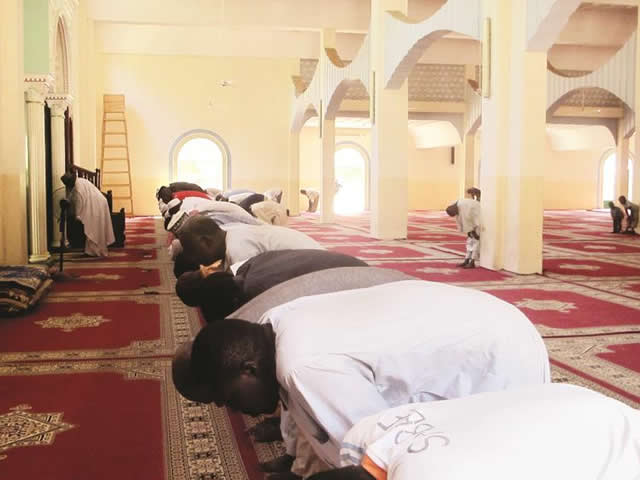International media reports that Angola has banned Islam have caught the headlines, but it is not what it seems. It highlights once again poor communication and clumsy policy by the Angolan authorities, and how ill thought through policies are distorted by Angolan social media, the opposition and the international press.
What we know for sure is that the Angolan Culture Minister Rosa Cruz e Silva said last week that her government wanted to reduce the number of 'sects' in Angola. According to the minister, this was to combat witchcraft and illegal migration – but was targeting mostly Brazil-style evangelical groups that have mushroomed across Angola in recent years and have particularly worried establishment churches that have seen their congregations dwindle.
The minister was quoted when she issued a list by the Ministry of Justice and Human Rights of 170 rejected faith groups that had requested to be recognized by the government – mostly evangelical churches, but including the Angolan Islamic Community, an umbrella organization of the Muslim community in Angola.
The minister was probably misquoted by local media, although this technically puts members of the Angolan Islamic Community at risk of arrest. There is growing prejudice against Muslims in Angola, fuelled by the evangelical groups that the government wants to regulate or ban. In Huambo a Mosque has been closed by the provincial authorities and in Saurimo a minaret had to be dismantled. Amnesty International and the US State Department talk about erosion of religious freedom and the anxiety of the practising Muslims in Angola is understandable.
Whatever the intention, the Angolan government is currently distracted by domestic opposition politics, and President José Eduardo dos Santos is out of the country in Spain for an extended private visit that has reignited speculation about his health. The Angolan security forces cracked down on 23 November on opposition protests in Luanda, resulting in the death of one opposition activist and the detention of 292 people. The demonstrations followed prosecutors saying that two activists, who were involved in organizing protests by former presidential guards to demand payment of wage arrears, had been kidnapped and possibly murdered in May 2012.
These developments have heightened tensions already rising from frustration over President dos Santos' 34 years in power, which have resulted in him giving two media interviews this year after 22 years of media silence, including recently signalling in a Brazilian media interview that he has been actively thinking about presidential succession. We should not expect any quick decision on succession, but clearly he is considering his options and the party of government, the MPLA, retains influence over this process, as was demonstrated by the delays over getting support for Manuel Vicente to be vice president in 2012.
The State of the Nation speech by President dos Santos on 15 October revealed the additional pressures that the president and his government are currently experiencing. Drought in 14 of 18 provinces of the country has resulted in hardship and a reduction of hydroelectric generation, adding to the energy deficit. The oil sector also grew only by 5.6 per cent rather than the projected 17.7 per cent and has had knock on effects, including drawing attention to bad debt management by line ministries and pressures for greater efficiencies.
Angola has one of the fastest population growth rates in Africa, and growing numbers of young people want jobs and opportunities that the government is finding difficult to deliver. Out of a population of 19 million, there are currently 7.4 million students enrolled in all levels of non-university education. They all want jobs but the economy remains stubbornly dependent on oil and gas despite the governments' efforts to diversify including seeking deepened commercial relations.
It is the growing frustration in urban areas at the government's slowness to deliver job and services that is the key driver behind the government's desire to tighten its control of over religious and political association. The headlines that Islam is banned in Angola could pose a much more immediate risk to Angolan security, as it might not only radicalize Muslim communities in Angola but could make Angola a legitimate target for jihadists. It also jeopardizes the Angolan government's efforts to diversify its commercial partnerships with Turkey, Indonesia and the Gulf States, which all have large Muslim communities.
Despite President dos Santos' absence, the seriousness of this blunder by his government needs decisive action. A clear unambiguous reaffirmation of the vision he gave in his October State of the Nation speech – that 'the building of the new democratic society, inclusive and prosperous' includes freedom to practice Islam – is needed urgently.
Alex Vines is research director, Area Studies and International Law; and head of the Africa Programme at Chatham House.



